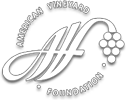Targeted Genome Editing for Trait Improvement in Vitis vinifera
Targeted genome editing to modify gene expression has rapidly emerged as an effective tool for cultivar improvement. This approach can result in two types of new grape varieties with one or several trait improvements: 1) Transgenic clones of existing varieties, or 2) Non-transgenic breeding lines to develop new varieties. In this first phase of the project, we aimed to demonstrate this technology by enhancing the powdery mildew resistance of ‘Thompson Seedless.’ Among the approaches that confer powdery mildew resistance in Vitis vinifera, silencing of susceptibility genes has proven to be promising both in terms of efficacy as well as potential durability. We previously showed that reducing expression of grapevine VvPmr6A, VvPmr6B, VvMloA, or VvMloQuadX resulted in up to a 60%reduction of powdery mildew incidence, even though our artificial microRNA approach only partially reduced target gene expression. In this current work we are using a Transcription Activator-like Effector Nuclease (TALEN) strategy to completely knock out our target genes and obtain even stronger disease resistance. In addition, we have identified two additional candidates that are grapevine genes directly related to Arabidopsis Pmr4 and Pmr5, which confer strong powdery mildew resistance in other plants. In this context, in the past year we were successful in assembling 7 TALEN constructs targeting all 6 target genes. The constructs are now being transferred into the final plant destination vector, which is expected to be sent for grape transformation by late February 2015.
Based on our previous results and publications in other plants, we expect to see a significant increase in powdery mildew resistance. This targeted genome editing approach will demonstrate the potential to knock out genes in V. vinifera, establishing a protocol that could be extended to various traits in improving existing or new varieties. In the current and subsequent years, we aim to demonstrate another genome modification technique (dTALE-mediated activation of native gene expression) for increased abiotic stress tolerance in grapevine.

